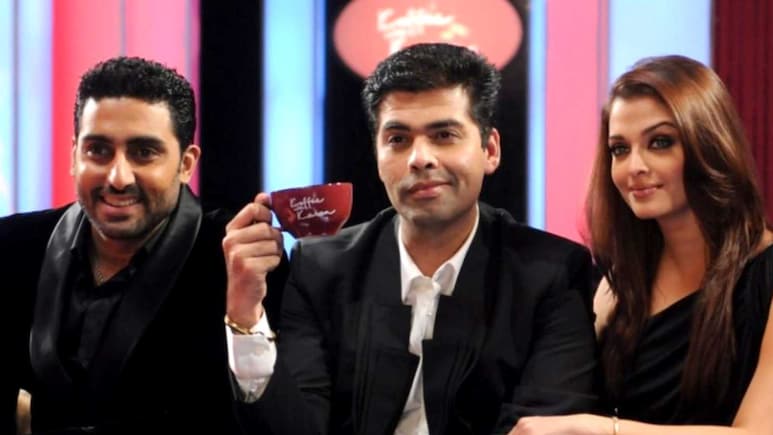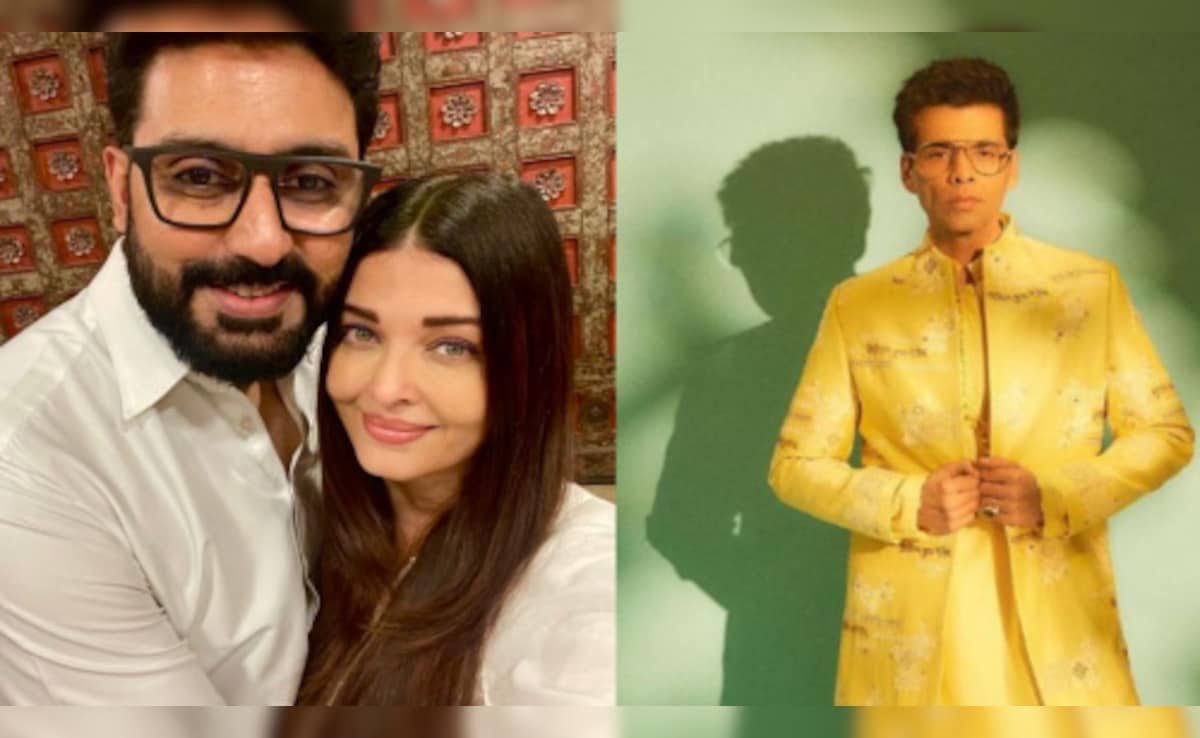
Celebrities are used to having their faces on billboards and their names in headlines. But when those images, signatures, and likenesses start appearing on mugs, T-shirts, dubious websites, and AI-generated material without permission, the harm is not only commercial, it can also be reputational, personal, and criminal.
In recent weeks, a clutch of high-profile suits in the Delhi High Court - led by Aishwarya Rai Bachchan and followed by Abhishek Bachchan and now Karan Johar - have put a spotlight on what courts in India call "personality rights" and how the law is evolving to police misuse in the digital age.
Why Are Aishwarya Rai Bachchan, Abhishek Bachchan And Karan Johar Going To Court?
The Delhi High Court has seen a spate of petitions from Bollywood's biggest names in recent days. Aishwarya Rai Bachchan first approached the court after her lawyers flagged unauthorised use of her name and photographs on T-shirts, mugs, and posters, as well as manipulated digital content like deepfakes and face morphs.
The court granted her interim relief and prohibited platforms from producing, selling or distributing such items.
Soon after, Abhishek Bachchan also moved court, pointing out that his images, name and persona were being misused online in a way that could harm both his reputation and his commercial interests. The court extended protection to him as well and made it clear that such unauthorised exploitation was not permissible.

Most recently, filmmaker Karan Johar filed a similar plea, stating that his identity and goodwill, built over years in the entertainment industry, were being diluted by the unauthorised use of his name, images and attributes. The court observed that these elements were closely tied to his professional associations and deserved protection.
What Are Personality Rights?
But what are these "personality rights" that Bollywood stars are fighting to protect? Advocate Daksha Kumar, Supreme Court lawyer and Managing Partner at JurAce Legal LLP, explains them as an individual's "VIP pass" to their own identity.
Explaining the concept, he draws a simple analogy: "Think of personality rights as your identity's VIP pass. They give you the exclusive right to control and profit from your own image, voice, and name. It's about protecting who you are. Now, this is different from other IP rights."
He adds, "Copyrights are for the things you create, like a book or a song--your 'work product.' Trademarks are for a brand, like a logo. But personality rights are for you--your personal brand. It's the difference between owning your artwork and owning your face."
How Indian Law Protects Personality Rights
Unlike copyrights or trademarks, personality rights do not come from one specific statute in India.
Instead, Kumar explains, "It's an interesting quirk of our legal system - there's no single law in India that says, 'Here are your personality rights.' The reality is, our courts have been the primary guardians of this area. They've built the legal framework on two existing foundations: the constitutional right to privacy, and the tort of 'passing off,' which is basically a legal way to call out a fake endorsement," adding, "This means the protection is robust and well-established, but it's a living law, growing with each new case rather than coming from one static rulebook."
How Courts Decide Harm
When it comes to cases like those involving the Bachchans and Karan Johar, courts weigh the kind of damage done.
As Kumar puts it, "The courts basically ask two questions: did you get hurt financially, and did you get hurt reputationally? Commercial harm is when someone uses your image to make money without paying you. It's like they're hosting a party and selling tickets using your name, but you're not even there."
Reputational damage is trickier but often more severe, especially in cases involving AI deepfakes or fake endorsements. These, as the courts have noted, mislead the public and distort a person's carefully built goodwill.
He states, "Then there's reputational harm. For example, in recent cases involving celebrities, the courts are cracking down on deepfakes and fake endorsements because they can seriously mislead the public and damage a person's trust and goodwill. It's about protecting a person's public image from being twisted or hijacked."
The Dilution Of Reputation
A public figure's identity is not just a face but a brand carefully built over the years. When someone misuses it, they create a counterfeit version of that brand. Misuse, Daksha Kumar notes, is corrosive: "It's a brand-identity crisis, but for a person."
If a celebrity's face appears on products or in content they don't endorse, it erodes trust. "When your brand is used by too many people, its unique value starts to fade," he explains.
What Makes A Strong Case
Celebrities do not face insurmountable barriers in proving such violations. "For a public figure, it's usually not that tough to get the ball rolling," says Kumar.
To establish a prima facie case, celebrities must show three things: that their identity was used, that it was without permission, and that it was for a commercial purpose. Once this is demonstrated, the burden shifts to the defendants to justify their actions.
Consent, Parody And Free Speech
But what about parody, satire, or commentary - staples of public life in a democracy? Here, intent matters. Commercial use of a celebrity's image always requires consent, but parody and satire fall under free speech protections.
As Kumar notes, "The key is the intent. Is the use to genuinely comment or tell a joke, or is it a sneaky way to sell something? The courts are experts at spotting the difference."
The Final Word
The spate of petitions shows two realities. First, courts are acting quickly to provide interim injunctions when misuse is proven.
Second, implementation is deeply procedural: takedowns require URL-specific evidence, and blocking may need government intervention.
For celebrities, the fight is about more than revenue. It is about dignity, trust, and narrative control in an era where AI can distort their faces or voices within minutes.
As the court noted in Aishwarya Rai Bachchan's case, misuse of a persona "may cause commercial detriment and impact their right to live with dignity".
In the digital age, protecting that dignity might just be the most urgent battle of all.

